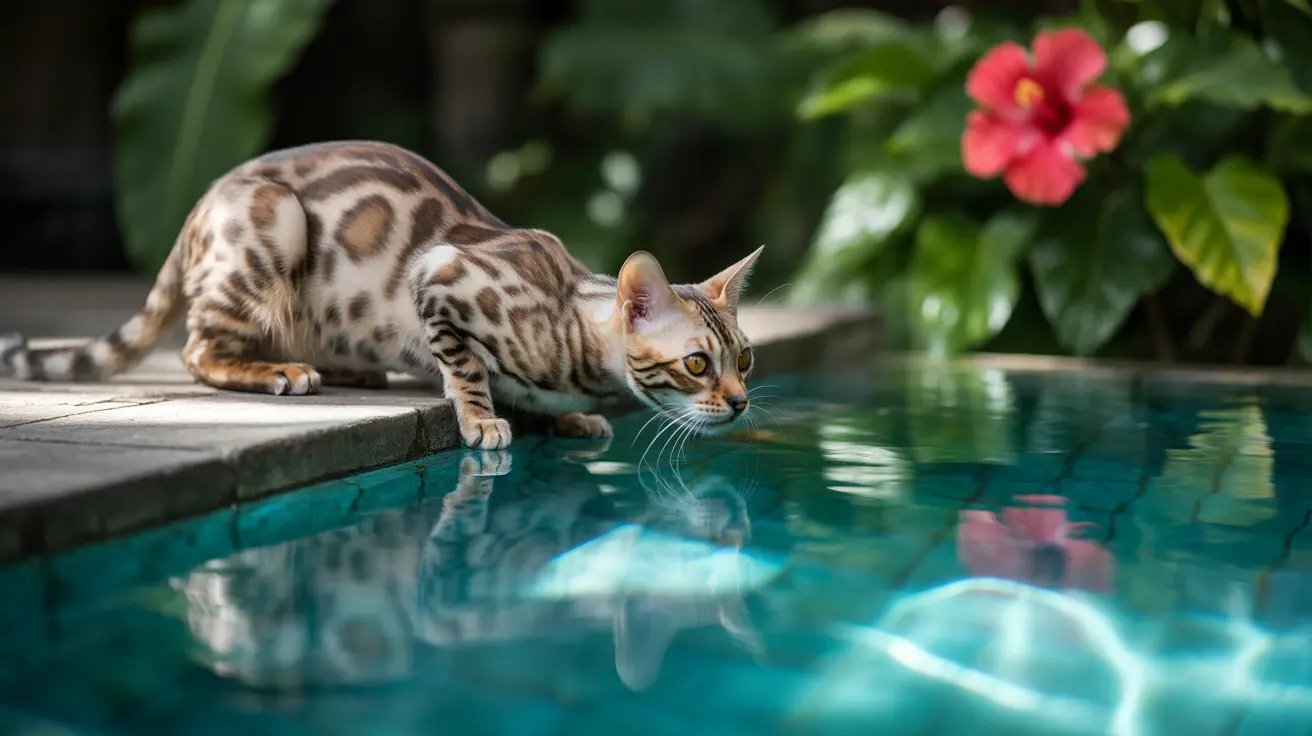As a cat owner, you may have noticed your feline friend's curiosity about swimming pool water. While cats are typically selective about their water sources, many are drawn to the movement and reflective nature of pool water. However, this seemingly innocent behavior can pose significant health risks to your pet.
In this comprehensive guide, we'll explore the dangers of cats drinking pool water, identify potential health risks, and provide practical solutions to keep your furry friend safe around swimming pools.
Understanding Pool Water Chemicals and Their Effects on Cats
Swimming pools contain various chemicals designed to keep the water clean and safe for human use. However, these same chemicals can be harmful to cats when ingested. The primary concern is chlorine, but pools also contain other potentially dangerous substances:
- Chlorine and chloramine compounds
- pH balancers
- Algaecides
- Cyanuric acid (chlorine stabilizer)
- Metal sequestrants
Immediate Health Risks of Pool Water Consumption
When cats drink pool water, they may experience several immediate health issues:
- Gastrointestinal upset and vomiting
- Excessive drooling
- Diarrhea
- Abdominal discomfort
- Oral irritation
- Dehydration
Long-term Health Concerns for Cats
Regular consumption of pool water can lead to more serious health complications:
- Chemical buildup in the system
- Kidney and liver stress
- Chronic digestive issues
- Weakened immune system
- Dental problems from chemical exposure
Prevention Strategies for Pool Safety
Create Safe Alternatives
The best way to prevent your cat from drinking pool water is to provide appealing alternatives:
- Place multiple fresh water sources around your home
- Install pet water fountains that simulate moving water
- Keep water bowls clean and frequently refreshed
- Position water sources in quiet, accessible locations
Physical Barriers and Deterrents
Implement these safety measures to restrict pool access:
- Install pool fencing
- Use pool covers when the pool isn't in use
- Create designated outdoor drinking stations
- Apply pet-safe deterrent sprays around pool edges
Emergency Response and Treatment
If you catch your cat drinking pool water or notice symptoms of chemical exposure, take these steps:
- Remove your cat from the pool area
- Offer fresh water immediately
- Monitor for concerning symptoms
- Contact your veterinarian if symptoms persist or worsen
Frequently Asked Questions
Is it safe for my cat to drink pool water occasionally?
No, while a few sips may not cause immediate harm, pool water contains chemicals that aren't safe for cats to consume. It's best to prevent any pool water consumption.
What health risks do cats face if they drink chlorinated pool water regularly?
Regular consumption of pool water can lead to digestive issues, chemical toxicity, kidney problems, and other serious health complications. The chemicals in pool water can accumulate in your cat's system over time.
Why do cats prefer drinking from moving water sources like pools?
Cats are naturally attracted to moving water because it mimics fresh water sources in nature. This instinct helps them avoid stagnant water that could harbor harmful bacteria in the wild.
How can I prevent my cat from drinking pool water and reduce the associated health risks?
Provide multiple fresh water sources, install pet fountains, use physical barriers around the pool, and ensure constant supervision when your cat is near the pool area.
What should I do immediately if my cat drinks pool water and shows signs of illness?
Monitor your cat closely for symptoms, offer fresh water, and contact your veterinarian if you notice persistent vomiting, diarrhea, lethargy, or other concerning symptoms.
Remember, prevention is always better than treatment when it comes to pool water safety. By implementing these strategies and remaining vigilant, you can protect your cat from the dangers of pool water consumption while ensuring they stay properly hydrated with safe, fresh water.






